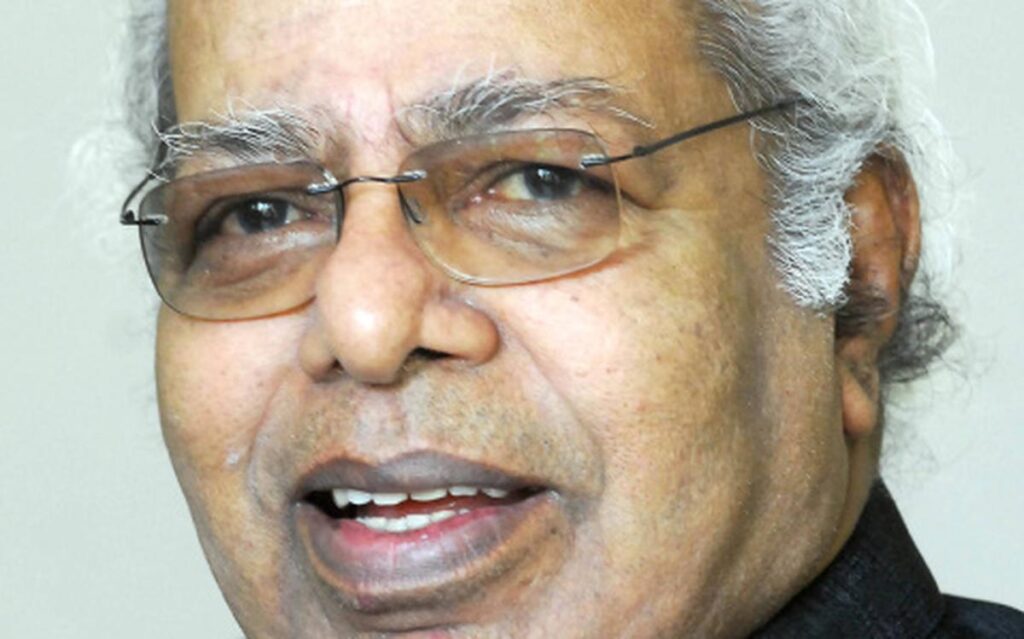The virtuoso actor bagged three national awards and eleven state awards and was dead against superstardom
“No Sir, I won’t come.”
“Why?”
“He is a very hot-tempered person; he can even beat me.”
That was how my photographer responded when I asked him to accompany me to interview the late Thilakan, the film artiste.
True, Thilakan’s body language, stentorian voice, and even certain looks made him inaccessible to many, including journalists and cameramen.
Ten years have passed since the thespian who was a colossus over the Malayalam stage and screen left us. Before his death, the virtuoso actor bagged three national awards and eleven state awards. Not a mean achievement at all.
From theatre to cinema
Perhaps stints in many troupes like Kottayam National Theatres, Kayamkulam People’s Theatres, Kollam Kalidasa Kalakedram, Changanachery Geetha Arts Club, and even KPAC before his foray into the film world fashioned him to portray versatile roles with uncanny easy in films.
Admittedly, Thilakan was KPAC’s pick when they needed a substitute for K P Ummer in Aswamedham and Sarasayya.
Born with an indomitable zeal for histrionics, Thilakan was inspired to join S N College, Kollam, for the presence of students like O Madhavan, Sambhasivan, and Ravi who later became an acclaimed editor and director.
The college team, with the active presence of Thilakan, brought laurels to the college by participating in the second inter-university youth festival held in Delhi.
His longest stint in theatre was in the PJ Theatres of P J Antony, who had high esteem for Thilakan. Association with Antony opened innumerable vistas for Thilakan. His debut in the filmdom was in P J Antony’s Periyar.
Noteworthy was his role as the youth mentally derailed after facing nonsensical questions in the viva voce of the IAS examination.
Thilakan feels that our concept of awards is totally absurd. He always fumed at the very mention of ‘supporting actor’.
“Whom do you call a supporting actor? Is he the one who portrays a supporting character? It must be the artistry of an actor that should serve as the yardstick for fixing the award for the best actor.”
“The award for Perunthachan was more for that legendary character than for my artistry,” he had said.
Further, there was not even a mention of his captivating roles in films like Moonnaam Pakkam and Kauravar that highlighted the total range of his skills.
Kallu (liquor) Varkey in Kolangal demanded evocation of varying degrees of intoxication, which was difficult to accomplish in cinema due to a lack of continuity in the shooting. But no one seemed impressed until the film was telecast, he lamented.
Say no superstars
Thilakan believed that an actor is moulded by events and persons around him of which he has to be a keen observer. Proclivity for imitating people who had impressed him in childhood helped him immensely during the later years of his career.
It was a person called Chakkara Baby, a jaggery vendor who was his model for enacting the antics of a drunkard. Similarly, he owed much to a European painter, Wilkinson, for portraying a physically handicapped man impressively in Kauravar. In fact, Thilakan was heavily beaten up by his father for imitating the foreigner.
“All these images of varied characters get self-edited in an inexplicable manner in me as I try to portray them,” That has been the secret of his success. Thilakan was sore that modern cinema had degenerated into cheap comedies. What has contributed to such a dispensation is our misconception about superstardom.
The typecast approach of transplanting situations and characters from a film that has clicked quite accidentally to a preconceived frame leads to an overdose of unsavoury scenes like stunts. It is a pity that agencies like the Censor Board responsible for curtailing such trends are ignorant of the devastating consequences as reflected in the increasing incidence of violence in society.
Thilakan always deplored the absence of constructive criticism of cinema. Only a vigorous discussion of contemporary cinema in the media can help salvage the lost glory, he believed.

